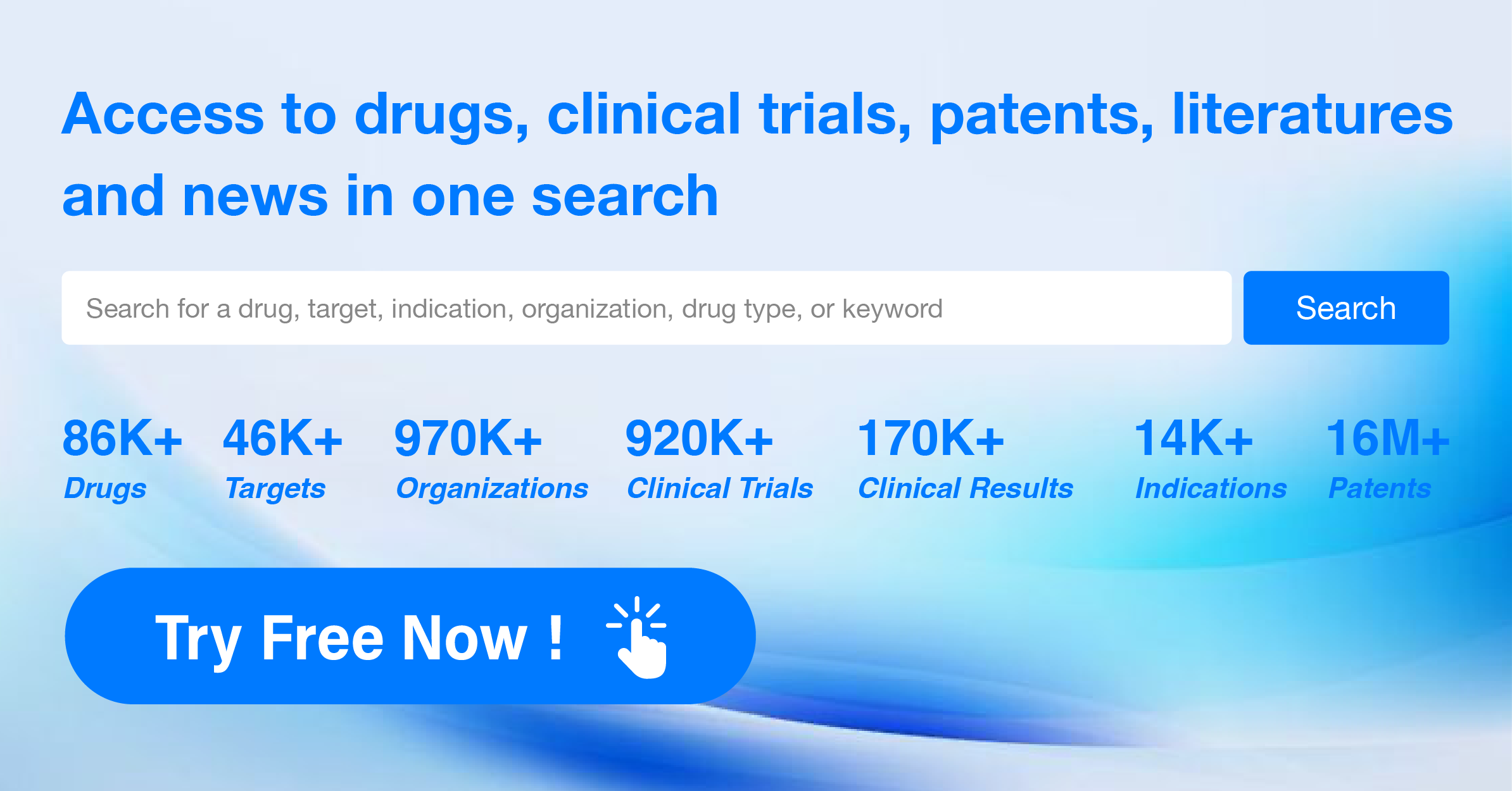Pharma Frontiers: Daily Digest of Global Pharmaceutical News - Jun 18
1.Sanhome Pharmaceutical's Oritinib Mesylate Tablets Approved for Marketing, Treating Non-Small Cell Lung Cancer
On June 17th, the website of the National Medical Products Administration (NMPA) of China showed that Sanhome Pharmaceutical's Oritinib Mesylate Tablets received marketing approval. The indication is for the treatment of adult patients with locally advanced or metastatic non-small cell lung cancer (NSCLC) who have progressed during or after EGFR-TKI therapy, and have been tested and confirmed to be positive for the EGFR T790M mutation. Oritinib Mesylate Tablets (SH-1028) are a third-generation EGFR-TKI developed by Sanhome Pharmaceutical, capable of irreversibly binding to mutated forms of EGFR (T790M, L858R, and exon 19 deletions), inhibiting the phosphorylation of EGFR, and blocking the activation of downstream signaling pathways. Preclinical in-vitro and in-vivo studies have shown that Oritinib has a high selectivity for the wild-type EGFR kinase. In October 2022, Sanhome Pharmaceutical published data from the Phase II SHC013-II-01 study of Oritinib (200mg/d) treating EGFR T790M mutant NSCLC in the Journal of Thoracic Oncology. This study was a multicenter, single-arm, open-label clinical trial, divided into Part A and Part B; Part A was the dose expansion study (n=59) and Part B was the pivotal registration study (n=227). The results showed that the objective response rates (ORR) for patients in Part A and Part B were 55.9% and 60.4% respectively, the median progression-free survival (PFS) was 12.4 months and 12.6 months respectively, and the median overall survival (OS) was 26.0 months and has not yet matured.
2.AstraZeneca's durvalumab (Imfinzi) approved for a new indication: first-line combination therapy for endometrial cancer!
On June 17th, according to AstraZeneca's official website, durvalumab received FDA approval for a new indication. It is to be used in combination with carboplatin and paclitaxel, followed by maintenance treatment with durvalumab alone for adults with primary advanced or recurrent endometrial cancer exhibiting mismatch repair deficiency (dMMR). This approval was based on the results of the Phase III clinical trial, DUO-E.
The DUO-E study (GOG 3041/ENGOS-EN10) is a randomized, double-blind, placebo-controlled, Phase III clinical trial designed to evaluate the efficacy and safety of first-line therapy combining Imfinzi with carboplatin and paclitaxel, followed by maintenance treatment with Imfinzi ± olaparib in newly diagnosed advanced or recurrent endometrial cancer patients. The primary endpoint was progression-free survival (PFS) compared to the standard treatment.
Trial findings indicated a statistically significant improvement in PFS when Imfinzi was combined with carboplatin and paclitaxel compared to carboplatin and paclitaxel alone among the general population, where the improvement was predominantly seen in patients harboring dMMR tumors. Among 95 patients with dMMR tumors, the median PFS for the Imfinzi group has not yet been reached, compared to 7 months (95% CI: 6.7, 14.8) (HR=0.42, [95% CI: 0.22, 0.80]) for the placebo group. Overall survival was not mature at the time of the PFS analysis.The most common adverse reactions (>25%) for the combination of Imfinzi with carboplatin and paclitaxel were peripheral neuropathy, musculoskeletal pain, nausea, alopecia, fatigue, abdominal pain, constipation, rash, diarrhea, vomiting, and cough.
Imfinzi is a humanized monoclonal antibody that binds to the PD-L1 protein. It blocks the interaction of PD-L1 with PD-1 and CD80, counteracting the tumor’s immune evasion strategy and lifting the inhibition of the immune response, thus enhancing the capability of the immune system to kill cancer cells.
3.Chia Tai Tianqing’s tyrosine kinase receptor inhibitor Envonalkib approved for market
On June 17, as shown on the NMPA official website, Chia Tai Tianqing's innovative drug, Envonalkib capsules, has been approved for marketing. It is indicated for the treatment of patients with locally advanced or metastatic non-small cell lung cancer (NSCLC) that is ALK-positive and who have not previously been treated with an ALK inhibitor. Envonalkib is a tyrosine kinase receptor inhibitor that exhibits significant inhibitory effects on both ALK and MET receptor tyrosine kinases. Key clinical results from the Phase III randomized controlled multicenter study comparing TQ-B3139 with crizotinib as the first-line treatment for advanced ALK-positive NSCLC (NCT04009317) were presented at ESMO ASIA 2022. As assessed by the IRC up to October 14, 2021, the median PFS (mPFS) for TQ-B3139 was significantly longer than that for crizotinib (NE vs 11.89 months, HR = 0.46 (P<0.0001)); the objective response rate (ORR) of patients treated with TQ-B3139 reached 81.68%. In all key subgroup analyses, TQ-B3139 demonstrated advantages. The results indicated that the overall incidence of treatment-related adverse events (TRAEs) was comparable between the two groups, and safety assessments revealed no new safety signals. The most rapidly progressing Phase III clinical trial of TQ-B3139 began in 2019, aimed at comparing the efficacy and safety of this drug with crizotinib in treating ALK-positive advanced NSCLC; while the Phase II clinical trial was targeted at ALK-positive advanced NSCLC resistant to crizotinib, as well as NSCLC with MET gene aberrations. In April, Chia Tai Tianqing's ROS1/ALK/c-Met inhibitor TQ-B3101 was approved for marketing, becoming the first domestically produced targeted drug approved for use in adult patients with locally advanced or metastatic NSCLC that is ROS1-positive. TQ-B3101 and TQ-B3139 share similar targets but have differentiated development pathways. The former focuses on ROS1-positive solid tumors, while the latter focuses on treating the ALK-positive patient group.
4.Hutchmed's Syk inhibitor Sovleplenib (HMPL-523) Phase 3 clinical data in China published in The Lancet Haematology
On June 17, Hutchmed announced that the results of the ESLIM-01 Phase 3 study in China for Sovleplenib, used to treat adult patients with primary immune thrombocytopenia, have been published in The Lancet Haematology. Additionally, further details and subgroup results of this study were recently presented at the European Hematology Association (EHA) 2024 annual meeting through an oral report and two poster presentations. Notably, the National Medical Products Administration (NMPA) of China has accepted the marketing application for Sovleplenib for adult patients with primary immune thrombocytopenia and has granted it priority review.
Sovleplenib is a novel, highly selective oral spleen tyrosine kinase (Syk) inhibitor designed for the treatment of hematologic malignancies and immune diseases. Syk plays a crucial role in the Fc receptor and B-cell receptor signaling pathways. Immune thrombocytopenia is a complex autoimmune bleeding disorder that results in reduced platelet levels in peripheral blood. It can also impact the quality of life of patients due to fatigue, activity restrictions, and anxiety.
The ESLIM-01 study is a randomized, double-blind Phase 3 clinical trial conducted in China with 188 adult patients with primary immune thrombocytopenia who had previously received at least one line of standard treatment. The study results demonstrated that Sovleplenib provided a clinically meaningful, rapid, and durable response in platelet counts with a tolerable safety profile and improved quality of life for patients. The primary endpoint was met, with the sustained response rate (DRR) in the Sovleplenib group at 48.4% (61/126), compared to zero in the placebo group, consistent across most predefined subgroups.
5.Alebund Pharmaceuticals' Small Molecule New Drug AP306 Proposed for Inclusion in the Breakthrough Therapy Designation
On June 17, the official website of the China National Medical Products Administration's (NMPA) Center for Drug Evaluation (CDE) announced that Alebund Pharmaceuticals' AP306 capsule is proposed to be included in the breakthrough therapy designation. The proposed indication for development is hyperphosphatemia in chronic kidney disease (CKD). According to publicly available information from Alebund Pharmaceuticals, AP306 is a broad inhibitor of sodium-dependent phosphate transport proteins that has completed Phase 2 clinical studies targeting hyperphosphatemia in CKD. Hyperphosphatemia is one of the most common complications in patients with CKD. Chronic elevation of serum phosphate levels can lead to multiple complications, such as secondary hyperparathyroidism, renal osteodystrophy, and vascular calcification, serving as an independent risk factor for cardiovascular events and all-cause mortality in these patients. Effective control of serum phosphate levels can significantly improve the prognosis of CKD patients. For CKD patients undergoing dialysis, regular dialysis still cannot remove accumulated phosphate from the body. Given the nutritional limitations posed by low-phosphate diets, oral phosphate binders are the primary treatment for hyperphosphatemia. However, many patients cannot achieve adequate phosphate control with currently available therapies.
According to public information from Alebund Pharmaceuticals, AP306 (EOS789) is an oral pan-inhibitor of the phosphate transport proteins NaPi-IIb, PiT-1, and PiT-2, which blocks the active intestinal transport of phosphate and holds the potential to overcome the limitations of low-phosphate diets and phosphate binders in treating hyperphosphatemia. The drug was initially discovered by Chugai Pharmaceutical in Japan. Alebund Pharmaceuticals has fully exercised the option and exclusively owns the global development and commercialization rights for AP306. At the 61st Annual Meeting of the European Renal Association (ERA) held in May this year, Alebund Pharmaceuticals presented Phase 2 clinical study data on AP306 in patients with hyperphosphatemia undergoing hemodialysis through an oral presentation. This study was completed at 11 research centers in China.
6.Eli Lilly GLP-1R/GCGR/GIPR Agonist Phase II Study Shows Promising Results
Recently, Eli Lilly published data from a Phase IIa study (NCT04881760) of the GLP-1R/GCGR/GIPR agonist Retatrutide (LY3437943) for the treatment of metabolic dysfunction-associated steatotic liver disease (MASLD) in the journal Nature Medicine. Overall, Retatrutide demonstrated significant efficacy in reducing liver fat content in MASLD patients, with a maximum reduction of up to 86%.
From May 20, 2021, to November 22, 2022, a total of 338 patients were enrolled to receive Retatrutide (1/4/8/12 mg, once weekly) or placebo treatment. Of these, 98 patients (29.1%) met the criteria of having liver fat content ≥10% (assessed by magnetic resonance imaging-proton density fat fraction, MRI-PDFF) and were included in the MASLD sub-study. The efficacy and safety analysis population for the sub-study included these 98 patients, whose baseline average liver fat content was 19.1%. Results showed a significant decrease in liver fat content in most patients over a 24-week period. After 24 weeks of treatment, all Retatrutide dosage groups showed a significantly greater reduction in relative liver fat content compared to the placebo group (P<0.001). In the lowest dosage group (1 mg), 71%, 43%, and 22% of patients had at least a 30%, 50%, and 70% reduction in liver fat content, respectively. In the highest dosage group (12 mg), 100%, 100%, and 80% of patients had at least a 30%, 50%, and 70% reduction in liver fat content, respectively.
MASLD is one of the most common chronic liver diseases globally, with a prevalence rate reaching 38%. Further worsening of MASLD can progress to metabolic dysfunction-associated steatohepatitis (MASH), which leads to increased liver fibrosis, eventually resulting in cirrhosis and potentially progressing to liver cancer.
7.More Than Two-Thirds of Patients Achieve Remission! Positive Results from Innovative Immunotherapy as a First-Line Treatment for Cancer
Shattuck Labs has announced the latest interim data from its Phase 1b dose-expansion clinical trial of its investigational therapy SL-172154. The analysis indicates that when used in combination with azacitidine as a first-line treatment for patients with high-risk myelodysplastic syndromes (HR-MDS) and TP53-mutated (TP53m) acute myeloid leukemia (AML), the objective response rates (ORR) were 67% and 43%, respectively. SL-172154 (SIRPα-Fc-CD40L) is an investigational ARC (Agonist Redirected Checkpoint) fusion protein designed to simultaneously inhibit the CD47/SIRPα checkpoint interaction and activate the CD40 co-stimulatory receptor to enhance anti-tumor immune responses in patients with advanced cancers. Currently, multiple Phase 1 clinical trials are ongoing for this therapy, including studies on patients with platinum-resistant ovarian cancer, AML, and HR-MDS. The main results from the Phase 1b trial are as follows:
HR-MDS: As of April 23, 2024, among 24 treated patients (of whom 21 had TP53 mutations, 16 had complex karyotypes, and 7 had therapy-related MDS), the ORR reached 67%. Among these, 10 patients (42%) achieved complete remission (CR), with a median time to CR of 3.6 months.TP53m AML: As of June 4, 2024, among 21 treated patients (all of whom had TP53 mutations or deletions, 19 had complex karyotypes, and 14 had secondary AML), the ORR was 43%. Among these, 6 patients (29%) achieved CR. One patient achieved complete remission with incomplete hematologic recovery (CRi), and two patients achieved partial remission (PR). The median time to CR was 3.8 months, and no responders experienced disease progression by the data cutoff date.
8.Immune-Onc's Investigational Therapy IO-202 in Combination with Azacitidine Demonstrates Positive Anti-Cancer Potential
Recently, Immune-Onc Therapeutics announced positive interim results from a Phase 1b expansion cohort of their investigational therapy IO-202 for the treatment of patients with chronic myelomonocytic leukemia (CMML). The analysis indicated that the combination of IO-202 and azacitidine (AZA) resulted in a complete remission (CR) rate of 53.8% in CMML patients. Historically, approved therapies have only achieved CR rates of 7-17%. CMML is a rare hematologic malignancy with low patient survival rates, and currently, standard treatments are not curative and no effective standard therapy exists. At present, hypomethylating agents (HMAs), including azacitidine, are the only CMML treatment options approved by the U.S. FDA, but these therapies have CR rates of just 7-17%. According to the 2023 response criteria of the international working group, early responses in patients treated with the IO-202 and AZA combination were encouraging, with a 53.8% CR rate (N=7/13), and the CR duration has been 10 months and is ongoing. This Phase 1b interim data further indicates that IO-202 is well-tolerated. IO-202 is a potential "first-in-class" IgG1 antibody that binds specifically and with high affinity to LILRB4, eliminating LILRB4-positive cells through antibody-dependent cellular cytotoxicity and antibody-dependent cellular phagocytosis. Hence, IO-202 is a targeted therapy with broad potential in blood cancers, autoimmune diseases, and inflammatory disorders.
9.CARsgen Therapeutics Announces Latest Clinical Data for Two CAR-T Products for Treating Multiple Myeloma
On June 17, CARsgen Therapeutics announced at the 29th European Hematology Association (EHA) Annual Meeting that the company presented 1/2 phase clinical study data for its autologous CAR-T cell therapy Zevorcabtagene Autoleucel Injection, targeting BCMA, for treating relapsed/refractory multiple myeloma (R/R MM) through an oral presentation. Additionally, the company presented the initial human clinical results of its autologous CAR-T cell therapy product CT071, targeting GPRC5D, for treating relapsed/refractory multiple myeloma patients, in poster form.
Zevorcabtagene Autoleucel Injection is an autologous CAR-T cell product targeting BCMA. At the EHA meeting, researchers orally reported findings from the LUMMICAR STUDY 1, which aims to evaluate the efficacy and safety of Zevorcabtagene Autoleucel Injection in patients with relapsed/refractory multiple myeloma. Preliminary results from the ongoing phase 1/2 LUMMICAR-1 study's phase 2 cohort (n=102) indicated that Zevorcabtagene Autoleucel Injection demonstrated compelling efficacy and acceptable safety in R/R MM patients who had undergone at least three prior lines of therapy.
CT071 is a fully human autologous second-generation CAR-T cell product targeting GPRC5D. At the EHA conference, researchers showcased the results of the initial human study of CT071 in patients with relapsed/refractory multiple myeloma. This first-in-human single-arm open-label exploratory clinical trial aimed to evaluate the safety and efficacy of CT071 in R/R MM patients. Preliminary data from the exploratory trial suggested that CT071 exhibited controllable safety and encouraging clinical efficacy in R/R MM patients without requiring bridging therapy, warranting further clinical study evaluation.
How to obtain the latest research advancements in the field of biopharmaceuticals?
In the Synapse database, you can keep abreast of the latest research and development advances in drugs, targets, indications, organizations, etc., anywhere and anytime, on a daily or weekly basis. Click on the image below to embark on a brand new journey of drug discovery!




